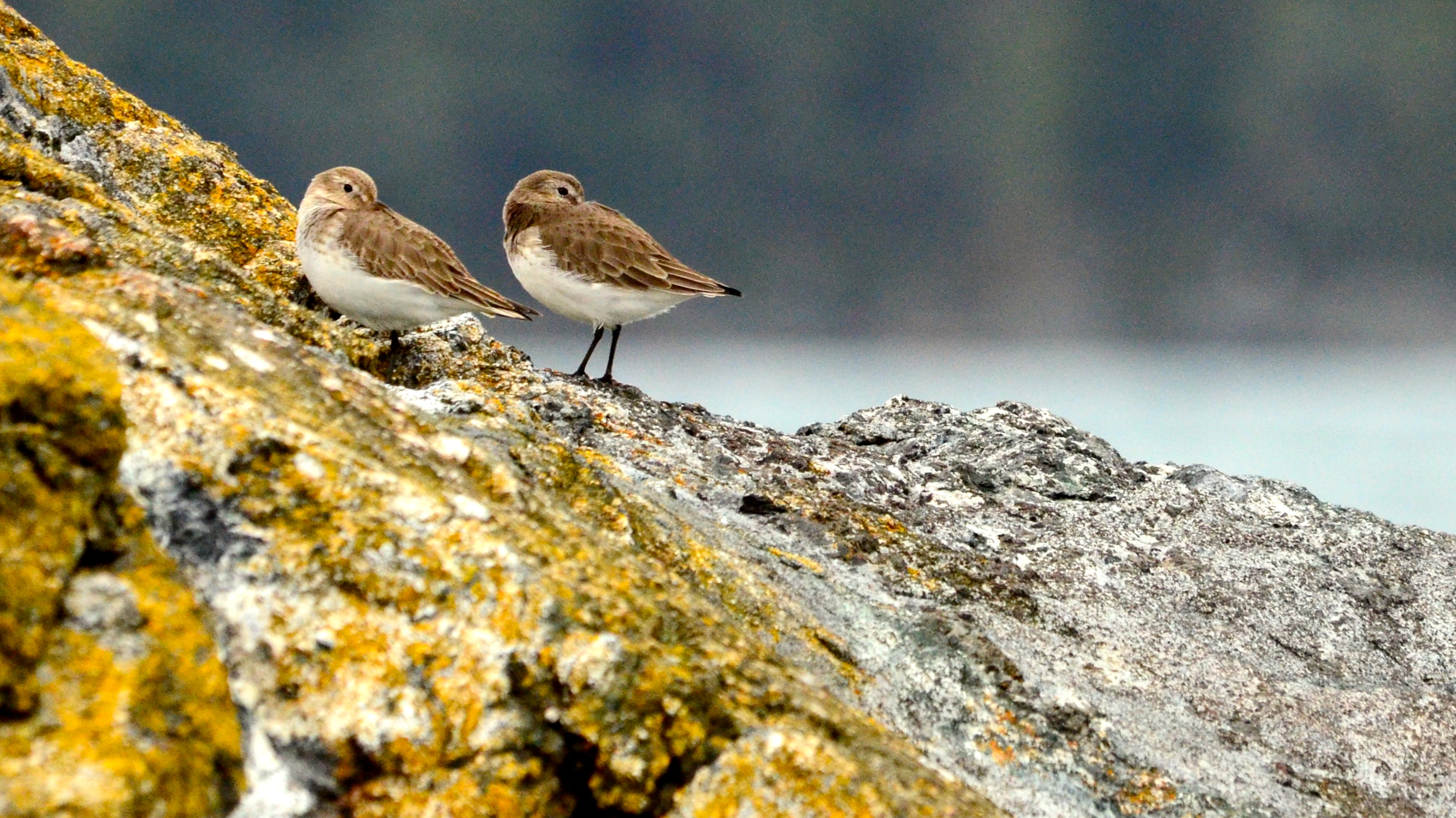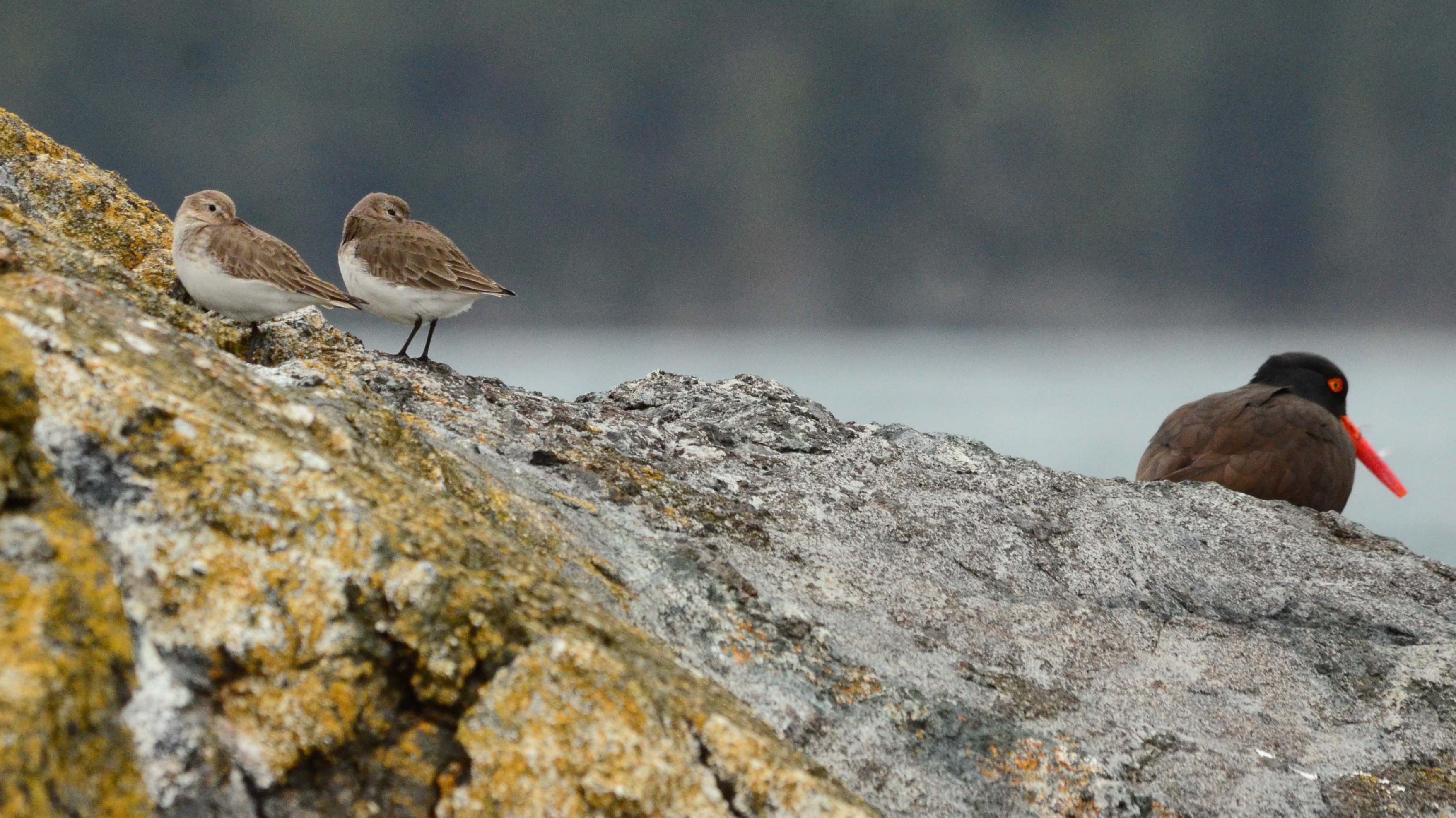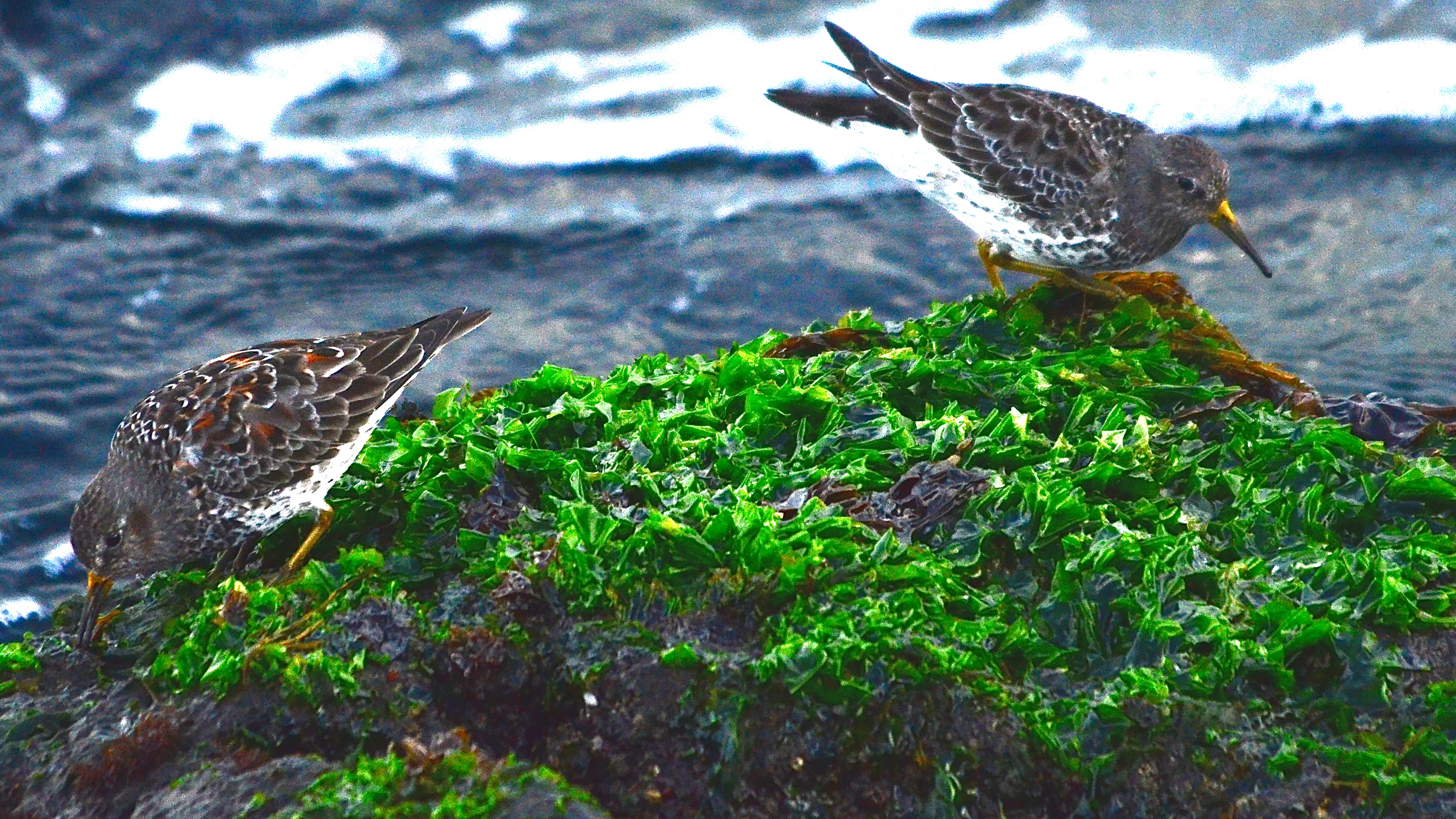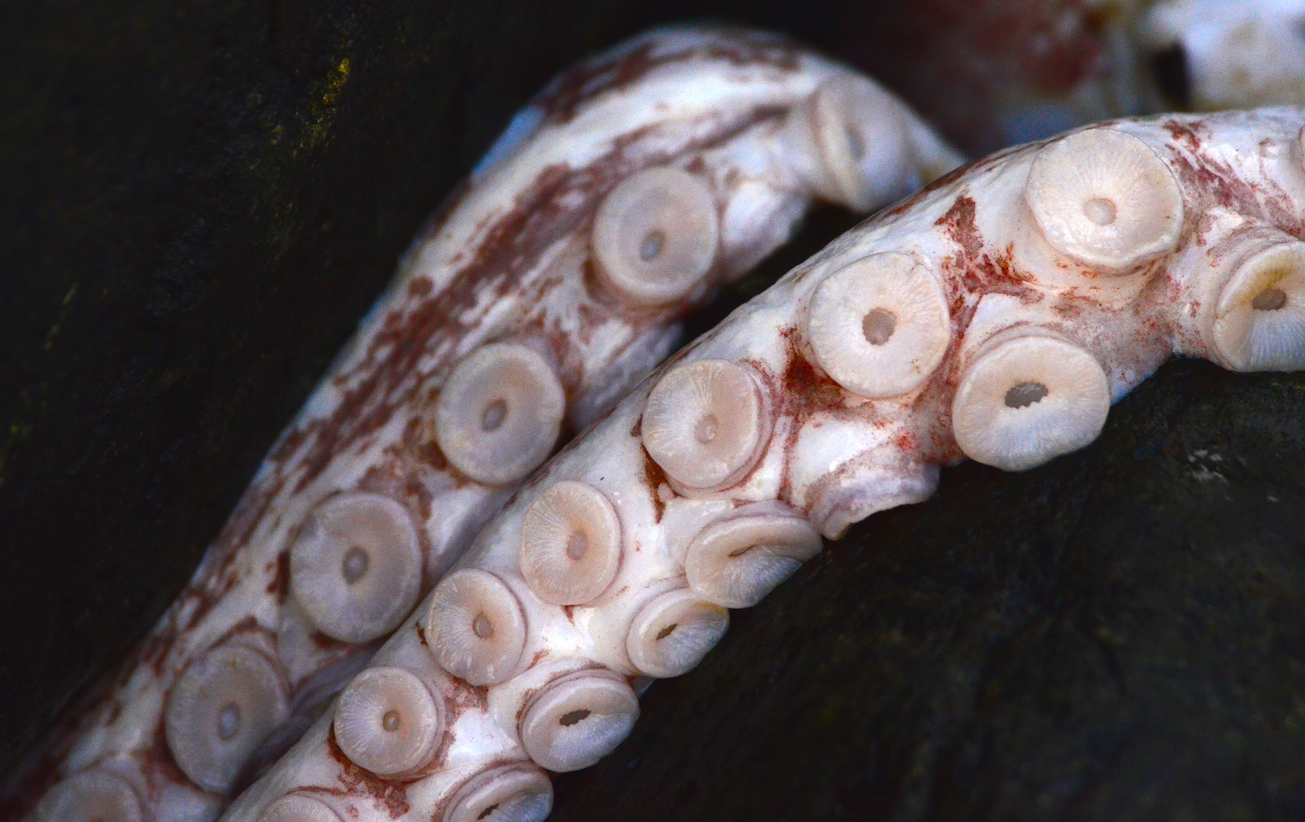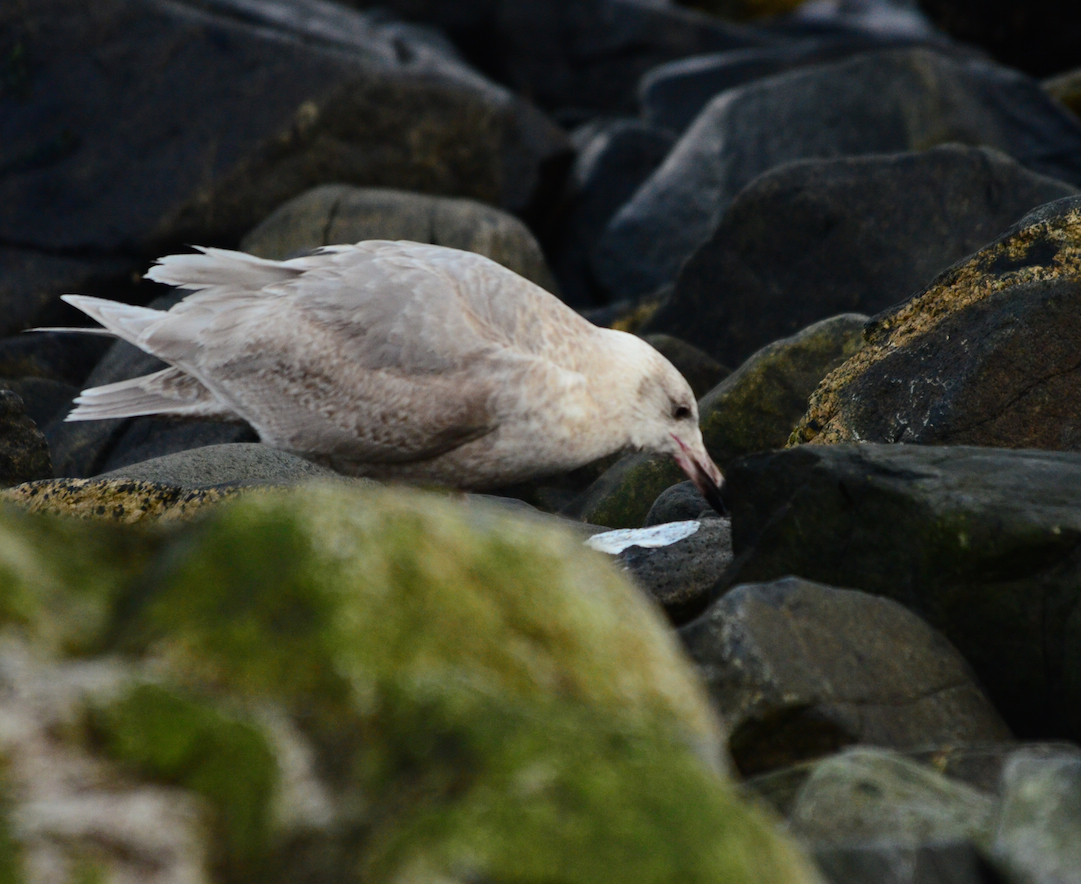West winds of ~25 knots brought heavily overcast skies loaded with rain this morning. The wind continued into the afternoon and the rain stopped occasionally while the sky brightened but remained dynamic and dramatic. As darkness fell it was still blowing 18 – 20 knots west. Barometric pressure rose steadily all day levelling off at dark, just below 1010 hPa. Forecasters call for light winds and showers here tomorrow.
It was a quiet day on the boating front with no whale watching or other vessels observed in the Ecological Reserve. Patrol vessels were positioned in Race Passage to ward off any unsuspecting boaters who might be venturing too close to Rocky Point and loud explosions punctuated lunchtime.
Ecologically, the day heralded spring, which is eternally welcome and now only a few weeks off. Mid-morning, Chunk, the woeful, sole remaining Northern Elephant Seal, shuffled off to the sea, leaving without destroying his daffodil pillow (see yesterday’s Log photo). The first few migrant shorebirds heading north, stopped and rested for a while on Great Race. I think they were Western Sandpipers. A small flock of Rock Sandpipers foraged on small invertebrates amongst the fresh seaweed turf.
A large, dead Giant Pacific Octopus was lodged in amidst the boulders on the south shore. It is hard to say what the cause of death was, but this is a species in which the female tends the eggs, while fasting, for seven months (or more depending on the temperature) and she dies soon after the eggs hatch. Lets hope that 50, 50,000 to 60,000 tiny hatchling octopods are tumbling out on the ebbing tide finding wee plankton to feed on and flashing colour signals to their siblings.
Right now the solar panels need extra help from the Lister generator for a few hours each evening but with spring on the way, there will be longer days and more intense sunlight levels, which will increase the contribution by solar generation. If anyone reading this knows of a small wind generation system that will not damage birds, please let Pearson College know about it. This is a windy place and could possibly be entirely weaned from diesel by using wind to supplement the mighty solar panels. The caveat is that the wind turbine can’t harm the birds that the Ecological Reserve is here to protect.
- I think these are Western Sandpipers but I am not feeling super confident on my shorebird IDs this week.
- This might help with scale.
- Are these Rock Sandpipers or Surfbirds with long bills?
- Enteroctopus dofleini is the world’s largest octopus. This one will make many meals for scavengers.
- Young Glaucous-winged Gull starts octopus dinner working on the head first.
There were no visitors and chores were routine.
